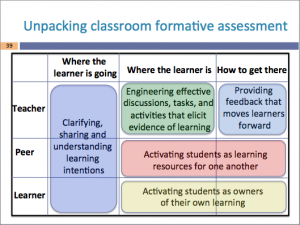Course: #2 
Dates/Venues:
2022
Amsterdam
May 1-6
Oct. 16- 21
On demand
Target Groups:
Teachers of Modern Languages in secondary, adult and vocational education
Course aims:
This course will familiarize language teachers with ways in which they can extend their repertoire of interventions and didactical procedures to address the variety in educational needs and interests of their students with ICT-supported methodologies.
Delegates will deepen their knowledge on:
– different types of and digital tools for assessment
– how assessment as/for learning activities can promote motivation and ownership of learning
– how Open Educational Resources (OER) can help to implement student-centred teaching & learning
Delegates will be able to use student response apps and a range of other ICT tools to timely:
– assess student pre-knowledge, progress and learning results
– adapt teaching and learning processes to accomodate students’ needs
– provide materials that promote interaction and dialogue for learning
Methodology:
The course combines short introductions in the form of brief plenaries on various methodological topics followed by presentations of ICT applications and multimedia that can facilitate assessment for learning. The subsequent practical work is done individually or in small groups depending on the needs and educational levels.
At the end of the week delegates will share and discuss a lesson created during the hands-on sessions.
To provide flexible access to course related tasks and resources a virtual learning environment (VLE) will be used. After the course concludes, participants will be able to access the VLE to promote follow-up communication and collaborative learning.
A pre-course, online questionnaire will be provided to assess pre-knowledge and further align course content and procedures to needs and interests.
Preparation:
You are advised to bring your subject book(s) and/or related ICT materials (if available) to the course to be used when creating customised materials and activities.
Day-to-day Course Topics
Day 1
• Meet & Greet / Introductions
• Questionnaire review / finetuning expectations
• Cultural Event
Day 2
• Overview of course contents and structure in VLE
• Introduction to testing and assessment, focus on assessment for learning
• Reflection & discussion on personal current practice
• Introduction to response tools, required infrastructure and techniques for assessing & activating pre-knowledge, goal setting and success criteria clarification.
• Exploring and analysing illustrative video practice reports, teaching and learning materials.
• Feed up on the course task: (re)design and develop a lesson based on formative assessment principles: selecting textbook topic / unit in current practice for elaboration
• Hands-on activities: familiarization with and developing pilot materials for selected software tools
Day 3
• Using response tools for specific pedagogic purposes (multiple-choice tests with automatic grading, providing immediate feedback and promoting student collaboration («peer earning»), facilitating follow-up activities)
• Focus on content preparation for response tools (question types, designing questions, quality issues)
• Exploring and analysing sample materials.
• Hands-on activities: familiarization with and adapting & developing teaching materials for selected software tools
• Finding and using resources. Copyright & Open Educational Resources (OER).
Day 4
• Introduction to response and other ICT tools, formative assessment techniques. Focus on receptive skills development activities
• Exploring and analysing sample materials.
• Supporting peer learning with response tools. Teacher behaviour repertoire (e.g. questioning) to promote dialogue for learning. Guidelines for collaborative learning
• Exploring and analysing related sample materials.
• Hands-on materials production
Day 5
• Introduction to response and other ICT tools, formative assessment techniques. Focus on productive development activities
• Exploring and analysing sample materials.
• Feed back for and assessment of learner products
• Materials and procedures for student training to provide peer & self assessment of learner (interim) products
• Hands-on materials production
Day 6
• Future developments: Automated & Adaptive testing / Learner analytics
• Strategies and resources for further professional development
• Finishing Lesson materials
• Presenting and discussing lessons designs.
• Course wrap-up and evaluation
Click here for the General TELLConsult Course Terms (registration procedures, costs, cancellation, etc…)